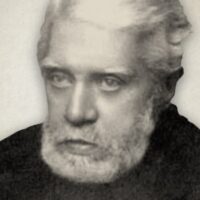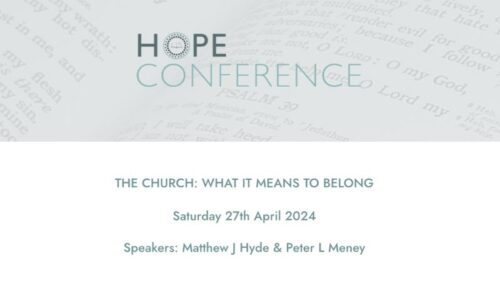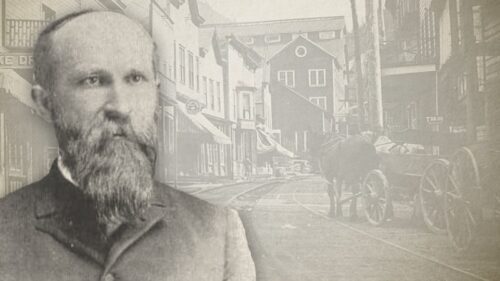
Article 2 – The Blessed Trinity In Unity
Articles Of The Faith And Order Of A Primitive Or Strict And Particular Baptist Church Of The Lord Jesus Christ, Based On The Declaration Of Faith And Practice Of John Gill, D. D., 1720
II. The Blessed Trinity in Unity.
We believe that there is one living and true God,[1] the Creator and Upholder of all things,[2] and that there are three eternal Persons in the Godhead, the Father, the Son, and the Holy Ghost, who are equal in nature, power and glory,[3] and that the Son and the Holy Ghost are as truly and properly God as the Father.[4]
——————————-
[1] Deut 6:4; 5:26; Jn 18:3; 1 Thess 1:9; 1 Tim 2:5; Js 2:19
[2] Gen 1:1; Ex 20:11; Job 7:20; Jn 1:3; Acts 17:24
[3] Matt 3:16,17; 27:19; 2 Cor 13:14; Col 2:9; Heb 1:8; 1 Jn 5:7
[4] Jn 1:1-3; 6:69; 1 Cor 7:17; 12:11; 2 Cor 3:17; Col 2:2; Heb 9:14; 1 Pet 4:14
————————————————————–
Annotations:
The Being of God.
Note 1.—From these passages we learn that there is a great and glorious Being, who is a Spirit, self-existent, eternal, unchanging, omnipresent, unconditioned and infinite in His wisdom, power, goodness and truth, who desires to be known and worshipped as God, (Elohim,) or the Lord, (Jehovah,) by the children of men.
We further learn that in the one uncreated and undivided Godhead there subsist three Persons whom we are directed to distinguish as the Father, the Son, and the Holy Ghost.
Natural and Gracious Knowledge of God.
Note 2.—The Bible gives no definition of God, nor does it expressly assert His existence. This, however, it continually assumes. The testimony of Nature to the Being of God is stated to be so cogent, that men who do not yield it their practical assent are inexcusably guilty. “That which may be known, (or apprehended by the human reason,) of God is manifest in (or among them ) for God manifested it unto them ; for the invisible things of Him, since the creation of the world are clearly seen, being perceived through the things that are made,—even His eternal power and Deity—so that they are without excuse.” (Rom. 1:20, 21.)
These words fully sanction reverent attempts to demonstrate the existence and attributes of God from the constitution and order of Nature; aud books that do this are most instructive.
We, however, are careful to distinguish between the knowledge of God, that all men could and should possess, and the know ledge of His gracious character and relationship which can be possessed only by spiritual men. (Contrast such verses as Acts 14:17 and 17:24-29, and 1 Cor. 2:14,15; 2 Cor. 4:6; Heb. 11:6, and l John 2:20.)
The Trinity a Mystery.
Note 3.—The existence of the one Jehovah in a Trinity of co equal and co-eternal persons could never have been inferred from His works, and our knowledge of it depends entirely on the revelation which He has given of it in the sacred volume. Hence, in Col. 2:2, this great truth is called a “mystery,” or a fact which human reason could never have discovered, and which will ever remain incomprehensible to the mind of man. All attempts to explain it are worse than futile.
Pictorial representations of the Trinity, in which the Father is presented as a venerable man; the Son, as a beardless youth, and the Holy Spirit as a dove on the wing, are utterly irreverent and misleading. No similitude can set forth the inscrutable Being of God, (Isa. 40:18;) nor can it be simplified by illustra tions. Faith receives what God’s word asserts. Beyond this we know nothing.
Erroneous Phraseology.
Note 4.—The popular expression “The First, Second and Third Persons in the Trinity” has not only no Scriptural foundation, but is positively erroneous.
In the Trinity neither of the Divine persons is essentially before nor after the others. When enumerating them, inspired writers observe no fixed order. In Matt. 28:19, the Father; in 2 Cor. 13:14, the Son; and in Col. 2:2, the Spirit, are first mentioned.
The Divine Creator.
Note 5. In ascribing the Creation and Preservation of all things to God as such, this Article is more Scriptural than the Apostles’ Creed (so called) in which “God the Father, Almighty” is stated to be “the Maker of heaven and earth.”
In the earlier books of the Bible we are repeatedly told that God created all things. In the fuller light of the New Testament, it is, however, disclosed that the Three-One God, in the Person of Christ, and for His sake, called all created things into existence (Gen. 1:1; Psa. 115:15; Eph. 3:9; Col. 1:16,17; 1 Tim. 6:13; Heb. 1:2,3 and 1:3 and Rev. 4:11.)
A Note on 1 John 5:7,8.[1]
Observe (6) that testimony to the fact that Jehovah exists in a Trinity of Persons pervades the entire Bible, nor does this great doctrine rest on one or two isolated texts.
It is, (perhaps rightly) urged, that the last fifteen words in 1 John 5:7, and the first nine in verse 8 (omitted in the Revised Version) have not the same authority as the rest.
The late Rev. E. Bickersteth observes that they “are too questionable for us to use them as the sure word of God. They are omitted in far the greater number of the earlier manuscripts, by collating which, scholars obtain the correct text of the New Testament. We, however, have sufficient evidence in other parts of the Scripture of the truth of the three glorious Persons who subsist in the one undivided Godhead. It would seem as if God had left this one passage doubtful, to give us fuller confidence in the rest of His Word, seeing that out of so many that are clear passages, only one has thus been earnestly disputed.” Exposition of 1 John: published in 1846.
——————————-
[1] Editor’s Note—William Styles prefers the Westcott and Hort Text, often promoting that English translation which is based on that premise. Here is a case in point. The words of 1 John 5:7,8 are thrown into question, with the integrity of the Holy Scriptures undermined. The reader is pointed to the scholarly work of the Trinitarian Bible Society which represents the leading position of the Strict and Particular Baptists. Of particular interest is the TBS’s response to the attack upon 1 John 5:7,8. — Jared Smith.
William Styles (1842-1914) was a Strict and Particular Baptist preacher. He is the author of several works, including “A Guide To Church Fellowship As Maintained By Primitive Or Strict And Particular Baptists” and “A Manual Of Faith And Practice”.
William Styles, A Guide To Church Fellowship (Complete)
William Styles, A Memoir of John Hazelton (Complete)






